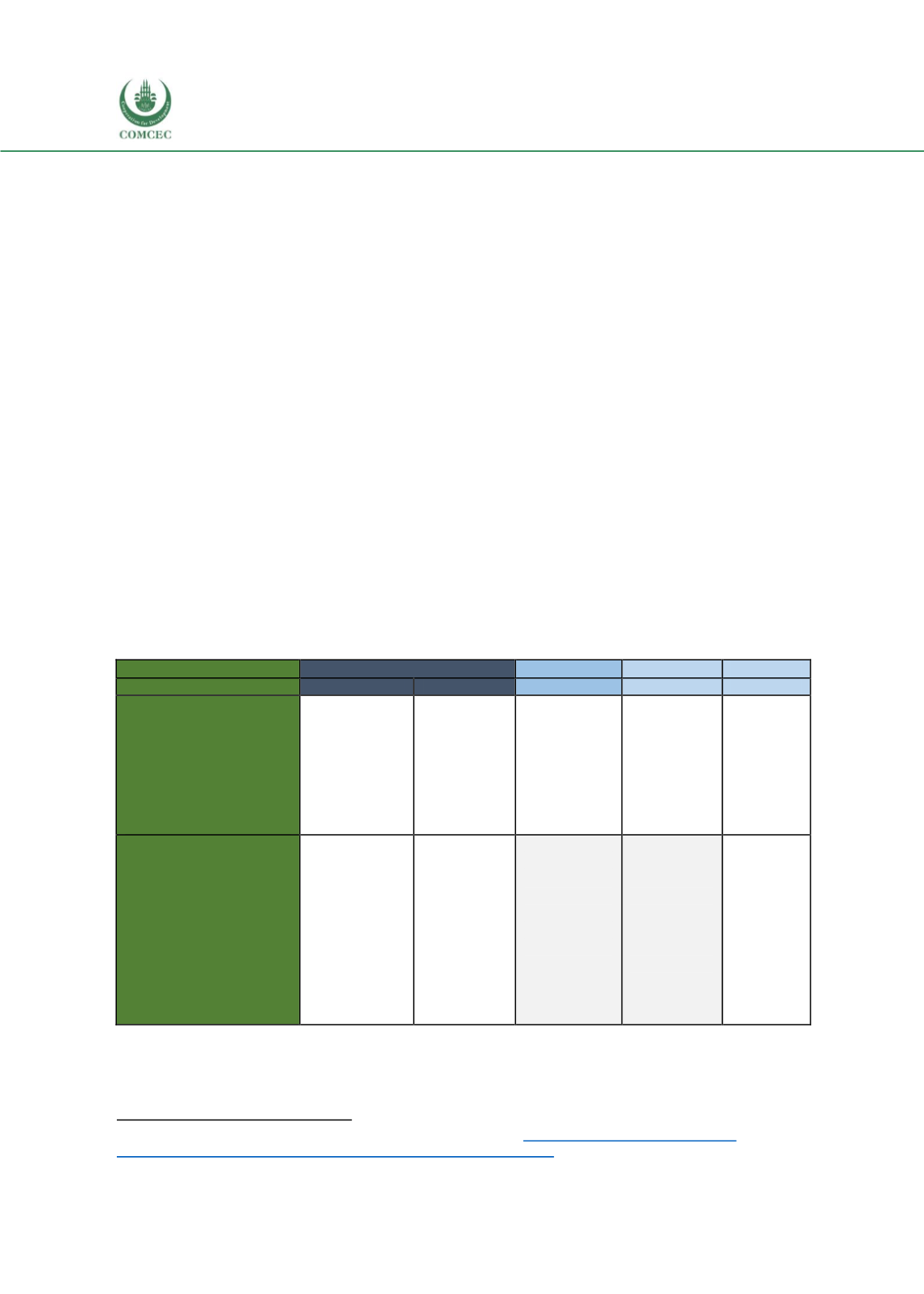

Increasing the Resilience of the Food Systems
In Islamic States in Face of Future Food Crises
126
Adaptation Activities
Governments typically adapt to existing vulnerabilities in their country’s food systems by
providing funds and vouchers to the most vulnerable in society. This was observed across all
case studies included in this study.
Among countries selected for case study, the most acute need for such safety nets is in Niger,
due to the higher vulnerability of the country’s population to food crises. To combat this, the
country has a dedicated office to coordinate aid and a fund—supplemented by pre-existing
stocks of essential grains—to ensure accessibility in a crisis, with substantial support from the
World Bank.
Adaptation is an important element of food security policy across all OIC countries, with various
shades of involvement by multilateral development organizations. Applying findings from the
case studies, it is imperative all OIC countries evaluate the adequacy of their social safety nets,
and that funds be made available to the most vulnerable households.
At the OIC level, the Islamic Development Bank could play an important role in establishing a
cross-OIC fund that supports low-income households, mirroring what is accomplished at a
national level in the U.S. and Ireland. However, new collaborations are also possible, such as by
pooling Zakat Funds collected by OIC governments, and through collaborations with
international organizations—such as the UNHCR, which has established its own Zakat Fund to
support refugees.
508
Table 67: Government Entities Responsible for Food Security
Category
Developed Countries
OIC – A1
OIC – A2
OIC – B1
Country
U.S.
Ireland
Indonesia
Niger
Oman
Core Agency
USDA
Agriculture
and Food
Development
Authority
Government
assistance
program
(Under
Ministry of
Finance)
HC3N
Coordination
office
Ministry of
Finance
(supported
by others)
Type of Assistance
Family
assistance –
Supplementary
Nutritional
Assistance;
School Lunch
Program
Family -
Health Food
for All and
Community
Food
initiatives
Specific
family
assistance –
cash and non-
cash aid
restricted to
rice and aid
Dedicated
National
Stock to
provide
emergency
assistance
Ongoing
vouchers
and family-
level support
Food
subsidies;
school
programs
Source: DinarStandard synthesis and analysis
508
“UNHCR Zakat Program: 2019 Launch Report.” DinarStandard. 201
9. https://www.dinarstandard.com/wp- content/uploads/2019/05/UNHCR-Annual-Zakat-Report-2019-FINAL-EN.pdf















